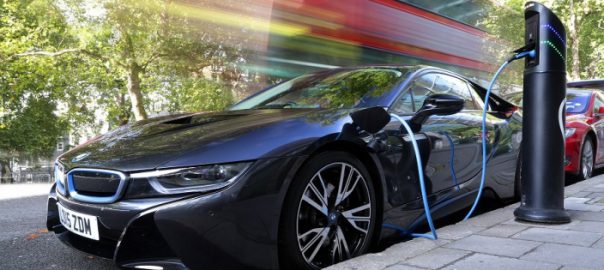The government has set out its plans for the future of UK electric vehicle charging infrastructure in the UK, including powers to standardise new publicly accessible chargepoints; requirements for smart technologies to allow chargepoints to help balance the grid; and minimum provision of charging infrastructure at motorway services.

The proposals have been unveiled as part of the government’s plans for a Modern Transport Bill, which will be introduced to Parliament at the earliest opportunity.
Within the response to a consultation on proposed ultra low emission vehicles (ULEVs) carried out at the end of 2016, the Department for Transport (DfT) has outlined a series of new powers to increase deployment of charging infrastructure.
Within this are plans to require infrastructure installed for the purposes of charging EVs to have ‘smart’ functionality to receive, understand and respond to signals sent by energy system participants.
This would allow charge points to help balance energy supply and demand in a similar way as battery storage, although the plans did not explain if this infrastructure would be able to access the same revenue streams open to storage.
This measure was met with overwhelming support from respondents, with 90% approving of the plans which could allow EV charging demand to “form a controllable load of immense proportions at a national scale”.
DfT also plans to adopt powers requiring operators of motorway service areas to ensure a minimum provision of electric and hydrogen fuels for ULEVs at their sites. This may mean they need to engage a third-party operator to provide the required infrastructure.
Read more: Clean Energy News
